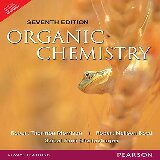

Most ebook files are in PDF format, so you can easily read them using various software such as Foxit Reader or directly on the Google Chrome browser.
Some ebook files are released by publishers in other formats such as .awz, .mobi, .epub, .fb2, etc. You may need to install specific software to read these formats on mobile/PC, such as Calibre.
Please read the tutorial at this link: https://ebookbell.com/faq
We offer FREE conversion to the popular formats you request; however, this may take some time. Therefore, right after payment, please email us, and we will try to provide the service as quickly as possible.
For some exceptional file formats or broken links (if any), please refrain from opening any disputes. Instead, email us first, and we will try to assist within a maximum of 6 hours.
EbookBell Team

0.0
0 reviews[from Preface]
Thirty-odd years ago, when the first edition appeared, it was a slim volume of only 900 pages. Yet, in our opinion—then, and now—it pretty well presented basic organic chemistry as it was then: a science whose theory had come of age and could be understood — and enjoyed — by beginners. The pattern underlying organic chemistry had begun to emerge, and it was our aim to reveal it to the students. With the structural theory before them, it soon became apparent students could begin to study organic chemistry, not through rote memorization, but through understanding.
But organic chemistry has, of course, continued to grow, and at a tremendous rate. Theories have been refined and exceptions to generalizations found: things are not as simple as they once seemed. New concepts and new tools have appeared and established themselves as part of basic organic chemistry: orbital symmetry, for example, on nuclear magnetic resonance. Many factors have been found to be much more important than was previously realized: the role of the solvent, stereochemistry in all its aspects, the juxtaposition of reacting groups. Hosts of new reagents have been devised: chemoselective, regioselective, stereoselective.